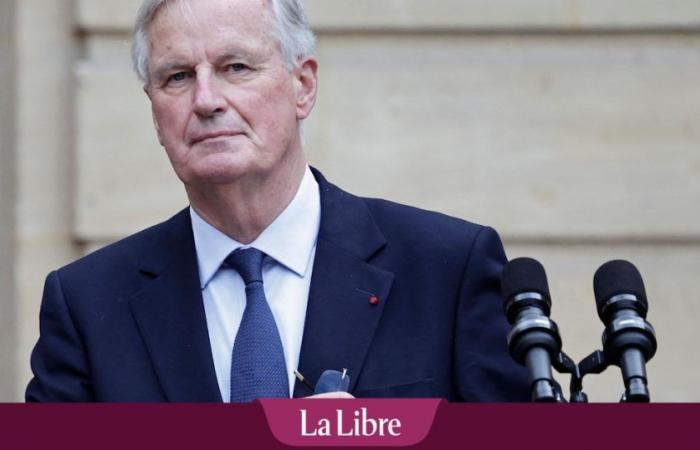
France’s “credibility” at stake
As much as Michel Barnier had maintained a certain vagueness about his intentions during his general policy speech, this time he clearly told the French who will have to pay more and who will have to spend less. With 60 billion in savings planned in one year – 20 billion in tax increases and 40 billion in reductions in public spending – everyone is going to drink. “The attractiveness or credibility of the French signature must be preserved“, affirmed Michel Barnier in front of the press, on the sidelines of a trip to Vienne, specifying at the same time that the effort asked of the French must be “just” et “balance”and that this budget will be “perfectible“because he had to”build in fifteen days”.
Sixty billion euros in savings, is that a lot? Yes and no. The forecast budget for 2024 provided for 536 billion euros in revenue and 684 billion in expenditure. This gives an order of magnitude. But 60 billion in savings is 2% of GDP, a level rarely observed in recent history. For comparison, the last budget provided for 16 billion euros in savings. That of 2013, the first of François Hollande’s five-year term, described at the time as a recovery “the most important in thirty years” by the socialist president, represented 40 billion efforts.
The twelve works of Michel Barnier: “I don’t even know where to start”
Concretely, the government plans to set up a minimum tax rate, around 20%, for the wealthiest households in order to limit their tax optimization (and replenish state coffers to the tune of 2 billion) and require large companies to make an exceptional contribution to their profits (which should bring in nearly 14 billion). On the expenditure side, ministries and state operators will have to tighten their belts (to the tune of 20 billion), as will communities (5 billion), retirees, who will see the indexation of their pension to inflation postponed. on July 1, and business leaders who will see certain reductions in employer contributions disappear and apprenticeship aid reduced. The objective is to reduce the deficit to 5% in 2025, compared to 6.5% forecast in the absence of consolidation measures.
A “violent” austerity plan
These drastic measures planned by Michel Barnier and Bercy, under the watchful eye of the markets and Brussels, aim not to prevent France from an improbable bankruptcy but to demonstrate that the country can, and wants, to redress its accounts to maintain confidence. of its partners. But they are highly contested within the political class.
Manuel Bompard, the coordinator of La France Insoumise, accused this draft budget of “the most violent austerity plan that France has ever known“. No wonder when we remember that the program of the New Popular Front to which he belongs provides 150 billion in new spending over three years and 100 billion in tax increases. The National Rally, through the voice of its vice-president Sébastien Chenu, for his part, refuses that “additional efforts be asked of the French to pay for the damage of the economic policy pursued for years” and threatens not to vote on the budget or even, as usual, to censor the government. Even within the macronie, although a stakeholder in the government, Gabriel Attal is opposed to the freezing of pensions and the increase in the corporate taxation, and calls for more spending cuts and reforms. It must be said that he needs to make his little music heard because he is running for the presidency of the Renaissance presidential party. France denounced “an unprecedented drain” and said “it does not accept any of the proposed measures”.
Who is Michel Barnier, the new French Prime Minister who is panicking France’s political class?
The bill is due to arrive in the chamber on October 21. The scenario seems written in advance: thousands of contradictory amendments will be tabled by MPs from all sides in order to unravel the text. Ultimately, a version close to the initial one will be adopted, without a vote, by way of 49.3 at the end of the allotted deadline, as under Élisabeth Borne in 2022 and 2023. One or more motions of censure will follow, including the outcome is uncertain. Is the austerity cure at this price?





